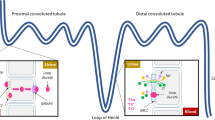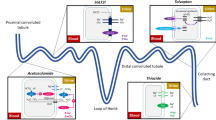Summary
Background
There is little data about intoxications with high doses of amlodipine, especially about relevant bradycardias.
Case report
A 70 year old woman with a history of hypertension, mechanical aortic valve replacement and ACBG was admitted to our intensive care unit 6 hours after ingestion of 300 mg amlodipine in a suicidal attempt. The initial clinical findings were hypotension, nausea and vomiting. There was no CNS depression; ECG and the laboratory tests were normal. First, crystalloids, calcium gluconate and norepinephrine were given to stabilize the blood pressure. Sixteen hours after admission the patient suddenly developed asystoly and had to be resuscitated. Atropine and epinephrine were not effective, a temporary pacemaker had to be administered. The patient was stimulated stimulated for 24 hours in a VVI mode, then a changing rhythm of normofrequent SR and tachycardial AF occurred. The patient developed pulmonary edema and acute renal failure and required mechanical ventilation for 4 days. On a treatment with catecholamines, calcium and furosemide the situation stabilized; renal replacement therapy was not necessary. The catecholamine therapy was given for 8 days because of prolonged hypotension. Finally the patient was discharged with complete restitution.
Conclusion
Intoxication with high doses of dihydropyridines can lead to sudden cardiac arrests. To avoid critical resuscitation situations, an early preventive pacemaker administration is recommended.
Zusammenfassung
Daten über Intoxikationen mit hohen Dosen von Amlodipin sind rar, es gibt kaum Informationen über relevante bradykarde Rhythmusstörungen.
Fallbericht
Eine 70-jährige Patientin wurde 6 Stunden nach Ingestion von 300 mg Amlodipin in suicidaler Absicht stationär aufgenommen. Es traten die in der Literatur beschriebenen typischen Intoxikationssymptome auf, eine protrahierte schwere Hypotension, gastrointestinale Beschwerden mit Übelkeit und Erbrechen, weiters ein Lungenödem. Wir verabreichten initial isotone Elektrolytlösungen, Calciumgluconat und Noradrenalin. Aktivkohle wurde wegen des Erbrechens und der mehrere Stunden zurückliegenden Medikamenteneinnahme nicht gegeben. Es trat ein akutes Nierenversagen auf, weiters 16 Stunden nach Aufnahme eine plötzliche Asystolie. Unter Reanimation wurde ein temporärer Schrittmacher gelegt. Die Patientin musste 4 Tage lang beatmet werden und war wegen des Nierenversagens und einer protrahierten Hypotonie noch weitere 6 Tage intensivpflichtig. Sie konnte schließlich am 20. Tag mit einer Restitutio ad integrum nach Hause entlassen werden.
Schlussfolgerungen
Bei Intoxikationen mit hohen Dosen an Dihydropyridinen ist auch eine Beeinträchtigung des Sinusknotens und des Reizleitungssystems möglich. Eine frühzeitige prophylaktische Schrittmacherversorgung sollte erwogen werden, um kritische Reanimationssituationen zu vermeiden.
Similar content being viewed by others
Author information
Authors and Affiliations
Corresponding author
Rights and permissions
About this article
Cite this article
Wimmer, F., Lenzhofer, R. Amlodipin-Intoxikation mit reanimationsbedürftiger Asystolie. Intensivmed 40, 506–508 (2003). https://doi.org/10.1007/s00390-003-0381-4
Received:
Accepted:
Issue Date:
DOI: https://doi.org/10.1007/s00390-003-0381-4




